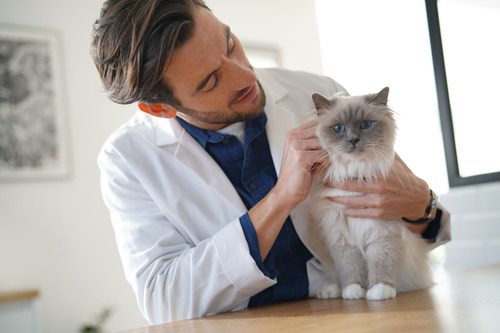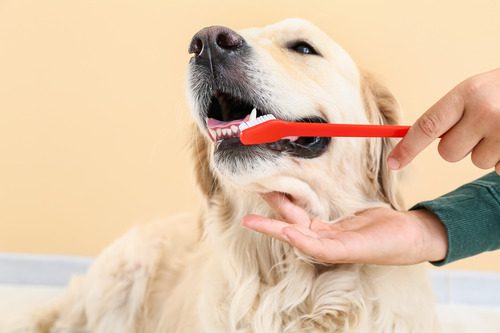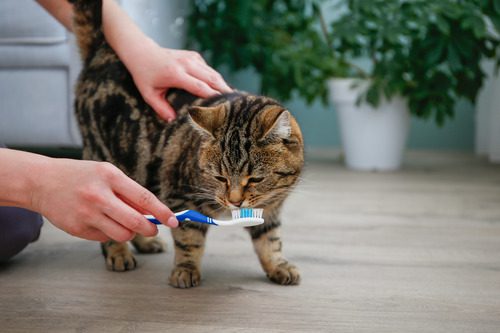Feline Leukemia: Prevention and Detection
Cat Feline Leukemia is a serious viral disease that affects felines worldwide. This contagious condition weakens a cat’s immune system, making them vulnerable to infections, anemia, and certain cancers. While a positive diagnosis may seem overwhelming, early detection and preventive care can help protect your cat’s health. At Providence Veterinary Hospital and Clinic, we emphasize regular screenings and proactive measures to reduce the risk of transmission. If you have concerns about your cat’s health, please call (510) 521-6608 or (510) 521-5775.

What Is Cat Feline Leukemia?
Feline Leukemia Virus (FeLV) is a retrovirus that suppresses a cat’s immune function, leading to secondary infections and severe health complications. This disease spreads through direct contact with infected saliva, nasal secretions, urine, feces, and milk. Kittens and young cats are especially susceptible, and those living in multi-cat households or outdoor environments face a higher risk of exposure.
What Are the Most Common FeLV Symptoms?
The signs of Feline Leukemia can vary depending on the stage of the disease. Some cats remain asymptomatic for months or even years, while others develop noticeable health problems. Common symptoms include:
- Persistent fever
- Lethargy and weakness
- Loss of appetite and weight loss
- Pale gums (a sign of anemia)
- Swollen lymph nodes
- Recurring respiratory or urinary infections
- Gastrointestinal issues, such as diarrhea
- Poor coat condition
If your cat exhibits any of these symptoms, contact Providence Veterinary Hospital and Clinic at (510) 521-6608 or (510) 521-5775 to discuss diagnostic options.
How Is Cat Feline Leukemia Diagnosed?
Early detection of Cat Feline Leukemia is essential for managing the disease and preventing its spread. Veterinarians use blood tests to diagnose FeLV, with two primary methods available:
ELISA Test
The enzyme-linked immunosorbent assay (ELISA) detects FeLV antigens in the bloodstream. This test is highly sensitive and can identify early infections before symptoms develop. If a cat tests positive, further testing is required to confirm the diagnosis.
IFA Test
The immunofluorescence assay (IFA) determines whether the infection has progressed to the bone marrow. A positive IFA result typically indicates a persistent infection that a cat’s immune system is unlikely to clear. If your cat tests positive for Cat Feline Leukemia, additional assessments, including complete blood counts and imaging, may be recommended to evaluate overall health and disease progression.
Prevention Strategies for Cat Feline Leukemia
Since cat Feline Leukemia has no cure, preventive care plays a critical role in reducing infection risks. Responsible pet ownership, routine veterinary visits, and vaccinations are key factors in protecting your cat.
FeLV Vaccination
Vaccination is the most effective way to prevent Cat Feline Leukemia. The FeLV vaccine is recommended for kittens and at-risk adult cats, particularly those who spend time outdoors or live in multi-cat environments. While no vaccine offers 100% protection, it significantly reduces the likelihood of infection.
Testing Before Adoption
Before introducing a new cat to your home, a FeLV test should be performed. Shelters and rescues often screen for FeLV, but it’s still important to verify a new pet’s health status. This precaution helps prevent the unintentional spread of the virus to existing pets.
Limiting Exposure to Infected Cats
Since Cat Feline Leukemia spreads through close contact, keeping uninfected cats away from those with FeLV is essential. Infected cats should be housed separately to prevent transmission, and shared food bowls, litter boxes, and grooming tools should not be used.
Routine Veterinary Care
Regular veterinary visits help detect health changes early, allowing for timely intervention. Annual FeLV testing is advised for at-risk cats, even if they appear healthy. If your cat needs a FeLV screening, call Providence Veterinary Hospital and Clinic at (510) 521-6608 or (510) 521-5775 to book an appointment.
Managing Cat Feline Leukemia in Infected Cats
A positive diagnosis does not mean a cat cannot live a comfortable life. While the virus cannot be cured, supportive care can help manage symptoms and improve overall well-being.
- Nutritional Support: Cats with FeLV require a high-quality diet that supports immune function. Avoid raw food diets, as they can expose immunocompromised cats to harmful bacteria. Your veterinarian can recommend appropriate nutritional plans tailored to your cat’s health needs.
- Preventing Secondary Infections: Since Cat Feline Leukemia weakens immune defenses, infected cats are more prone to bacterial, viral, and fungal infections. Keeping up with routine vaccinations, parasite prevention, and prompt treatment of illnesses helps minimize complications.
- Stress Reduction: Minimizing stress is crucial for maintaining an infected cat’s quality of life. Provide a quiet, comfortable living space and reduce exposure to environmental stressors, such as changes in routine or aggressive household pets.
- Regular Vet Check-Ups: Frequent veterinary visits allow for ongoing monitoring and early intervention if new health issues arise. Cats with FeLV should receive wellness exams at least twice a year to assess their condition and make necessary adjustments to their care plan.
Feline Leukemia is a serious disease, but with proactive prevention and attentive veterinary care, you can help protect your pet’s well-being. Whether you need FeLV testing, vaccinations, or guidance on managing an infected cat, Providence Veterinary Hospital and Clinic in Alameda is here to support you. To schedule an appointment, call (510) 521-6608 or (510) 521-5775 today.
Recent Posts
What Does Your Dog’s Tail Wag Really Mean?
What Does Your Dog’s Tail Wag Really Mean? Dogs use their tails for much more than just…
A Team Effort: How Home Care and Professional Cleanings Keep Your Dog’s Teeth Healthy
A Team Effort: How Home Care and Professional Cleanings Keep Your Dog’s Teeth Healthy Dental health is…
The Perfect Pair: Home Care and Professional Cleanings for Your Cat’s Teeth
The Perfect Pair: Home Care and Professional Cleanings for Your Cat’s Teeth Caring for your cat’s teeth…
What is Bordetella and Why Should You Care?
What is Bordetella and Why Should You Care? Bordetella is a term many pet owners hear when…
Why Are Dogs Scared of Loud Noises?
Why Are Dogs Scared of Loud Noises? Loud noises can be a significant source of stress and…
Providence Veterinary Hospital & Clinic serve Alameda, CA as well as Oakland, San Leandro, and the surrounding areas with superb veterinary medicine and gentle, compassionate care. We’ve been a part of this community since 1947 when a veterinarian started seeing pets in his home after the end of World War II. He built an animal hospital right under his house, and that’s where we remain to this day (with modern remodeling in 2016, to outfit the hospital with the latest medical technology and equipment, of course!).





